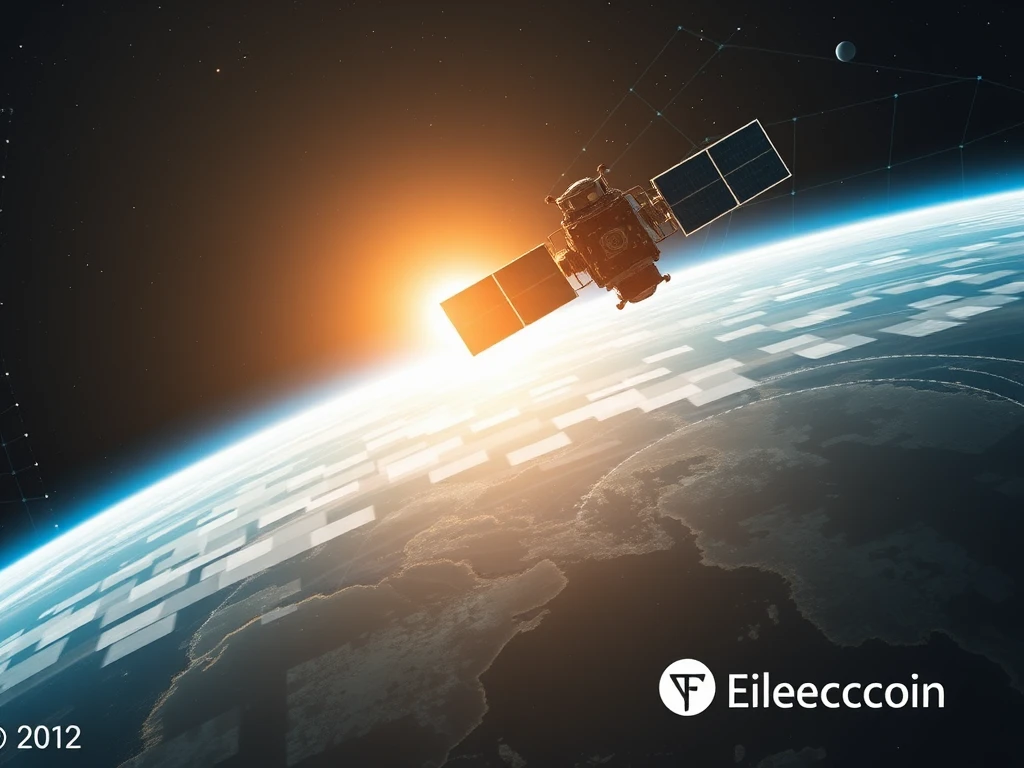Filecoin and Lockheed Martin Successfully Pioneer Data Transmission in Space

In a significant step for both space technology and decentralized protocols, Filecoin and Lockheed Martin have achieved a groundbreaking milestone. They successfully transmitted data in space utilizing a version of the IPFS technology aboard an orbiting satellite. This development opens new possibilities for efficient and resilient data transmission in space.
How IPFS Technology is Revolutionizing Space Communication
The core of this achievement lies in the adaptation of the InterPlanetary File System (IPFS). Unlike traditional web protocols that rely on location, IPFS identifies data based on its content. This content-addressing approach offers unique advantages, particularly for challenging environments like space. The IPFS technology helps in several ways:
- It reduces latency, which is crucial for long-distance communications like those to the Moon or Mars.
- It compensates for data corruption caused by radiation exposure in space.
- It enables cryptographic verification, ensuring data integrity and security.
Marta Belcher, president of the Filecoin Foundation, highlighted these benefits, noting that the architecture is inherently well-suited for the demands of space operations.
The Power of Decentralized Storage for Space Missions
The collaboration leverages the principles of decentralized storage. The Filecoin protocol, which uses IPFS, stores multiple copies of data across a distributed network. This architecture offers significant resilience compared to relying on single, centralized data centers. For space applications, where hardware can be prone to degradation or failure, having data replicated across a network enhances reliability and ensures critical information, such as satellite imagery, remains accessible and untampered with. This shift towards decentralized storage provides a robust solution for maintaining data integrity in harsh conditions.
Who is Involved: Filecoin and Lockheed Martin’s Partnership
This successful test is the result of a partnership between the Filecoin Foundation, a nonprofit supporting the Filecoin decentralized cloud storage protocol, and Lockheed Martin Space, a division of one of the world’s largest aerospace companies. Their joint effort adapted the IPFS technology for use beyond Earth’s atmosphere, demonstrating its potential for real-world, high-stakes applications. This collaboration highlights growing interest from traditional industries like aerospace in leveraging decentralized technologies.
Broader Implications and Future Possibilities
Beyond space communication, the principles demonstrated by this test have wider implications. The ability to efficiently and securely manage data transmission in space using decentralized methods could influence future satellite operations, deep space missions, and even terrestrial applications requiring high data integrity and low latency. The Filecoin Foundation is also exploring potential applications in areas like media archiving, where decentralized storage can provide robust, distributed access to historical records. The Filecoin (FIL) token, a utility token within the ecosystem, facilitates these storage operations.
Summary: A Giant Leap for Decentralized Data in Space
The successful test by Filecoin and Lockheed Martin marks a pivotal moment. By demonstrating the viability of IPFS technology for data transmission in space, they have showcased the practical benefits of decentralized storage for challenging environments. This achievement reduces latency, improves data resilience against radiation and corruption, and enhances security through cryptographic verification. It underscores the growing potential of decentralized protocols to provide critical infrastructure solutions, extending their reach far beyond traditional terrestrial use cases and into the realm of space exploration and communication.










